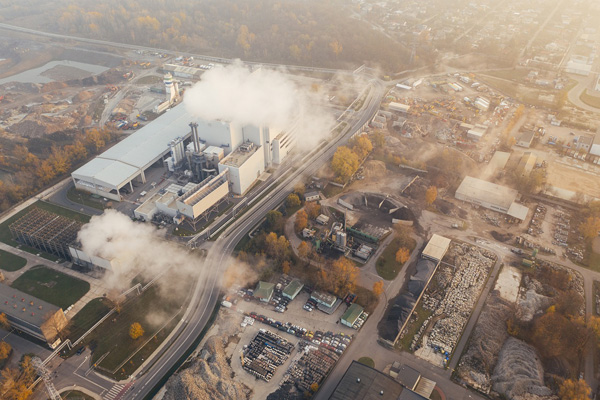The EU made a goal to cut greenhouse gas emissions by 90% by 2040

[Greenhouse Gas Emission. Photo credit by pixabay]
Amidst the urgency of the global climate crisis, the European Union (EU) has embarked on a formidable journey towards environmental sustainability.
At the heart of this endeavor lies a monumental goal: to slash greenhouse gas emissions by a staggering 90% before the year 2040.
This ambitious target represents a paradigm shift in environmental policy, signaling a departure from the incremental progress of previous decades.
However, as the EU forges ahead in pursuit of this lofty aspiration, it encounters a myriad of challenges and complexities, testing the limits of political will and societal resilience.
Central to the EU's strategy of reducing emissions is the transition away from fossil fuels towards renewable energy sources.
The imperative to mitigate the impacts of climate change has spurred investment in solar panels, wind turbines, and other eco-friendly technologies.
Yet, the road to decarbonization is fraught with obstacles, as entrenched interests and economic dependencies resist change.
Nowhere is this resistance more evident than in the agricultural sector, where the EU's emission reduction targets clash with the practical realities of farming life.
Farmers, often portrayed as stewards of the land, find themselves caught between the imperatives of environmental conservation and the exigencies of their livelihoods.
Mandates to reduce emissions by 30% and curtail pesticide usage have elicited fierce opposition, with farmers arguing that such measures could jeopardize their productivity and financial stability.
The resulting protests have laid bare the tensions between environmental ambition and socioeconomic realities, prompting policymakers to rethink their approach.
Beyond the agricultural sector, the EU faces a broader challenge in mobilizing public support for its environmental agenda.
While many citizens express concern about the impacts of climate change, they often struggle to reconcile their personal habits with the broader imperative of sustainability.
This cognitive dissonance is exacerbated by the pervasive influence of consumer culture, which promotes consumption and convenience over conservation and restraint.
As a result, efforts to promote eco-friendly behavior and lifestyles are met with varying degrees of success, underscoring the need for comprehensive and nuanced strategies.
In the political arena, the EU's environmental agenda faces scrutiny from both within and without.
With European Parliament elections on the horizon, the specter of shifting power dynamics looms large.
The European Greens, champions of the ambitious emission reduction goal, face a significant challenge from populist and far-right movements, whose rhetoric often dismisses environmental concerns as elitist or economically burdensome.
A victory for these forces could not only undermine progress on climate action but also sow doubt about the feasibility and desirability of transformative environmental policies.
Amidst these challenges, the EU must navigate a delicate balancing act, seeking to reconcile competing interests and values in the pursuit of a sustainable future.
This will require not only bold leadership and visionary policymaking but also genuine engagement with citizens and stakeholders at all levels of society.
Only by fostering a sense of shared purpose and collective responsibility can the EU hope to overcome the obstacles that lie ahead and chart a course towards a greener, more resilient future for all.

- Taeeon Alya Kim / Grade 7
- The Bement School

![THE HERALD STUDENT REPORTERS [US]](/assets/images/logo_student_us.png)
![THE HERALD STUDENT REPORTERS [Canada]](/assets/images/logo_student_ca.png)
